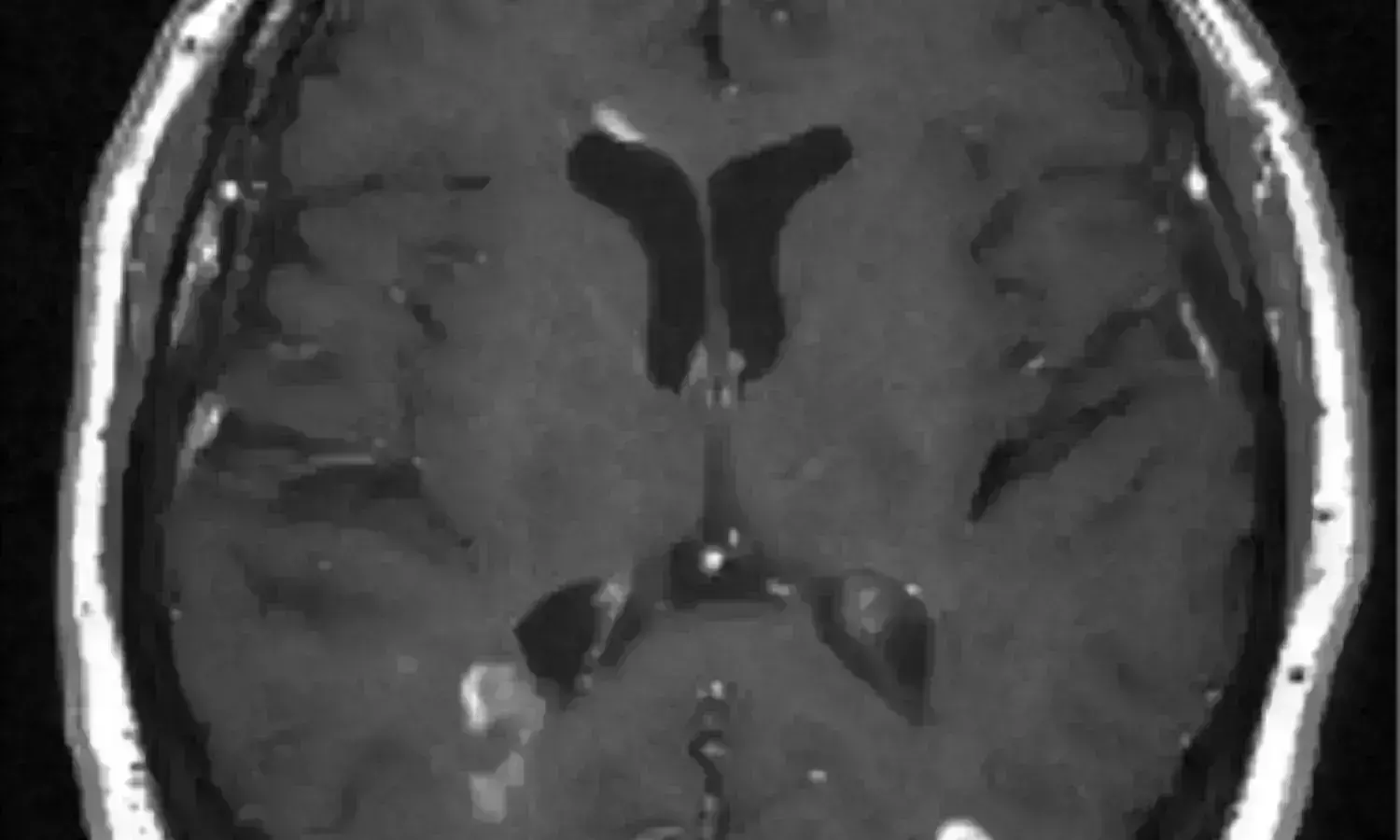- Home
- Medical news & Guidelines
- Anesthesiology
- Cardiology and CTVS
- Critical Care
- Dentistry
- Dermatology
- Diabetes and Endocrinology
- ENT
- Gastroenterology
- Medicine
- Nephrology
- Neurology
- Obstretics-Gynaecology
- Oncology
- Ophthalmology
- Orthopaedics
- Pediatrics-Neonatology
- Psychiatry
- Pulmonology
- Radiology
- Surgery
- Urology
- Laboratory Medicine
- Diet
- Nursing
- Paramedical
- Physiotherapy
- Health news
- Fact Check
- Bone Health Fact Check
- Brain Health Fact Check
- Cancer Related Fact Check
- Child Care Fact Check
- Dental and oral health fact check
- Diabetes and metabolic health fact check
- Diet and Nutrition Fact Check
- Eye and ENT Care Fact Check
- Fitness fact check
- Gut health fact check
- Heart health fact check
- Kidney health fact check
- Medical education fact check
- Men's health fact check
- Respiratory fact check
- Skin and hair care fact check
- Vaccine and Immunization fact check
- Women's health fact check
- AYUSH
- State News
- Andaman and Nicobar Islands
- Andhra Pradesh
- Arunachal Pradesh
- Assam
- Bihar
- Chandigarh
- Chattisgarh
- Dadra and Nagar Haveli
- Daman and Diu
- Delhi
- Goa
- Gujarat
- Haryana
- Himachal Pradesh
- Jammu & Kashmir
- Jharkhand
- Karnataka
- Kerala
- Ladakh
- Lakshadweep
- Madhya Pradesh
- Maharashtra
- Manipur
- Meghalaya
- Mizoram
- Nagaland
- Odisha
- Puducherry
- Punjab
- Rajasthan
- Sikkim
- Tamil Nadu
- Telangana
- Tripura
- Uttar Pradesh
- Uttrakhand
- West Bengal
- Medical Education
- Industry
Clopidogrel-aspirin decreases recurrent stroke risk in patients with acute infarct on imaging; JAMA

USA: According to new research, having an acute infarct on index imaging is related to an increased risk of recurrent stroke and a more noticeable benefit from clopidogrel-aspirin. The findings of this work were published in the journal JAMA Neurology.
Acute therapy with clopidogrel-aspirin was related to a substantially lower risk of recurrent stroke in the Platelet-Oriented Inhibition in New TIA and Minor Ischemic Stroke (POINT) study. There may be certain patient groups who will benefit more from this therapy. Sara K Rostanski and team, therefore, conducted its study with the objective to see if the presence of infarct on imaging attributable to the index event (index imaging) modifies the relationship of clopidogrel-aspirin with stroke recurrence in patients with mild stroke or high-risk transient ischemic attack (TIA) in the POINT Trial.
Patients with high-risk TIA and mild ischemic stroke were included in the POINT randomized clinical study at 269 locations across North America, Europe, Australia, and New Zealand from May 28, 2010, to December 19, 2017. Patients were separated into two groups in this post-hoc study based on whether they had an acute infarct on index imaging. This research was open to all POINT trial participants who had information on the presence or absence of acute infarct on index imaging. Univariable Cox regression models were used to examine the associations between the presence of an infarct on index imaging and subsequent ischemic stroke risk, as well as whether the presence of an infarct on index imaging altered the association of clopidogrel-aspirin with subsequent ischemic stroke risk. The data was examined from July 2020 to May 2021.
The exposure criteria were the presence or absence of acute infarction on index imaging. The primary goal is to see if the existence of an infarct on index imaging changes the connection of clopidogrel-aspirin with the risk of ischemic stroke.
The key findings of this study were as follow:
1. The inclusion criteria were satisfied by 4876 (99.9%) of the 4881 patients enrolled in POINT.
2. On index imaging, 1793 patients (36.8%) had an acute infarct. During follow-up, infarct on index imaging was linked with ischemic stroke (hazard ratio [HR], 3.68).
3. Clopidogrel-aspirin versus aspirin alone was associated with a lower risk of ischemic stroke in patients with an infarct on index imaging (HR, 0.56) compared to those without an infarct on index imaging (HR, 1.11), with a significant interaction association.
In conclusion, in high-risk patients with infarct on imaging, combination treatment with clopidogrel and aspirin was better than aspirin alone in avoiding a recurrent stroke. Prior to targeting specific patient categories for acute clopidogrel-aspirin therapy, further research should focus on verifying these findings.
Reference:
Rostanski SK, Kvernland A, Liberman AL, de Havenon A, Henninger N, Mac Grory B, Kim AS, Easton JD, Johnston SC, Yaghi S. Infarct on Brain Imaging, Subsequent Ischemic Stroke, and Clopidogrel-Aspirin Efficacy: A Post Hoc Analysis of a Randomized Clinical Trial. JAMA Neurol. 2022 Jan 18. doi:10.1001/jamaneurol.2021.4905.
Medical Dialogues consists of a team of passionate medical/scientific writers, led by doctors and healthcare researchers. Our team efforts to bring you updated and timely news about the important happenings of the medical and healthcare sector. Our editorial team can be reached at editorial@medicaldialogues.in.
Dr Kamal Kant Kohli-MBBS, DTCD- a chest specialist with more than 30 years of practice and a flair for writing clinical articles, Dr Kamal Kant Kohli joined Medical Dialogues as a Chief Editor of Medical News. Besides writing articles, as an editor, he proofreads and verifies all the medical content published on Medical Dialogues including those coming from journals, studies,medical conferences,guidelines etc. Email: drkohli@medicaldialogues.in. Contact no. 011-43720751


